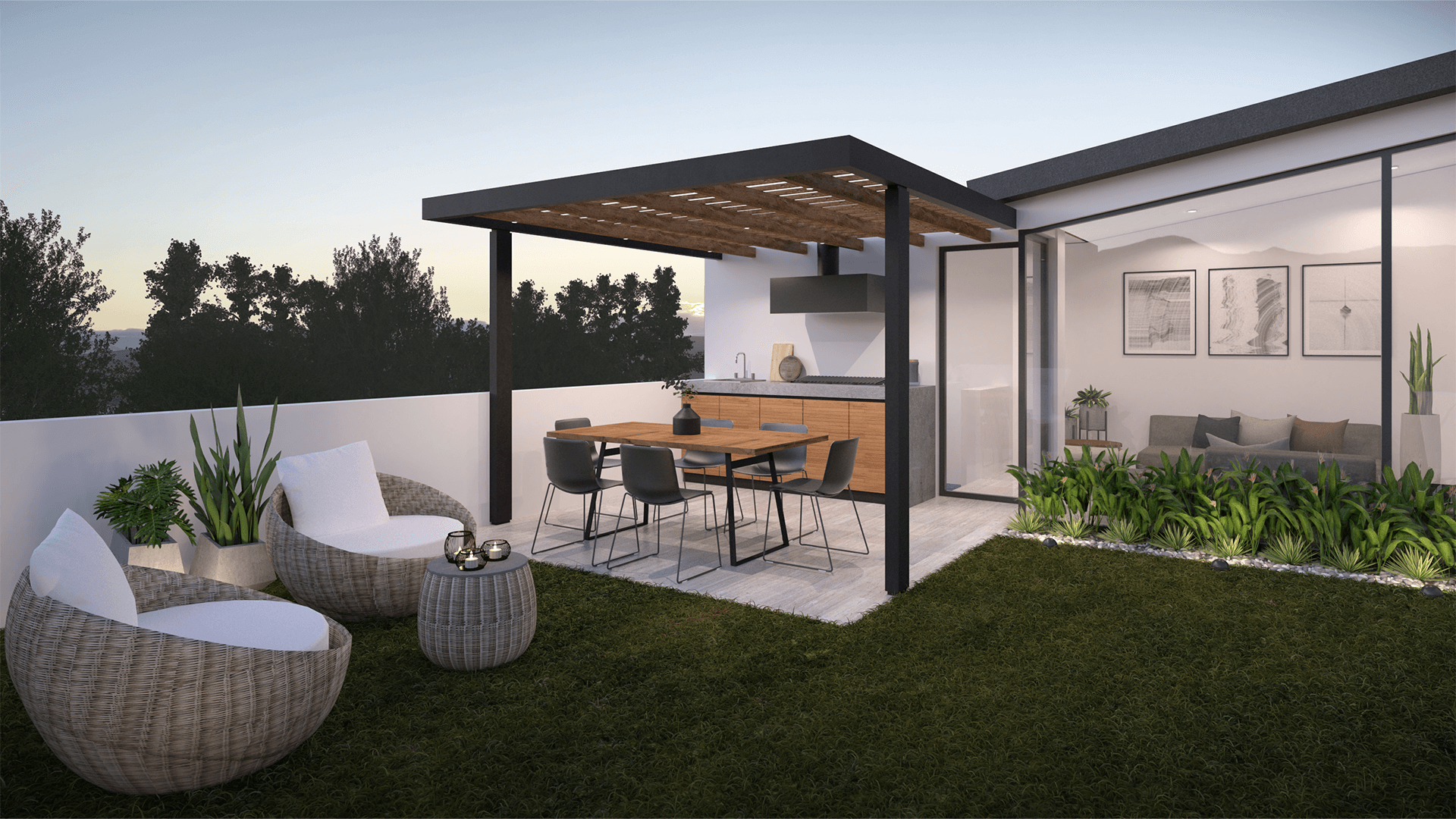When reading or hearing the term al fresco, it is easy to let our minds fly free to the splendid, sunny coasts of the Mediterranean Sea. The Italian word, which means ‘in the open, fresh air’, evokes images of picturesque rooftops in Sorrento, beach locales in the Canary Islands, and relaxing oases across the Greek peninsula.
In this respect, it is perhaps no surprise that, for more and more British houseowners, the idea of creating an al fresco space at home is gradually becoming an appealing prospect. Al fresco living areas are the perfect way to blend between the indoors and outdoors, allowing you to enjoy the best of two worlds in one area of the house. Not only is it an effective way to bring the breeze, light, and nature in, but it can also enhance the décor and aesthetic value of your property.
With this in mind, we explore some of the reasons for which al fresco living is the house trend on everybody’s lips, while sharing tips on how to maximise an indoor-outdoor lifestyle in your home.
The incentives of al fresco living
In recent years, Brits have been refurbishing and investing both money and effort into their private green spaces. In fact, 39% of houseowners have transformed and reinvented the way in which they use their outdoor areas. From turning their gardens into corners of relaxation to making changes that generate extra living spaces, people are increasingly finding ways to merge their interior and exterior design.
When it comes to carrying out open-air home improvements, Brits are often prepared to arrange all necessary amends without over-worrying about the costs. On average, UK homeowners tend to spend £6,175 to create the perfect indoor-outdoor ambience, paving the way to an al fresco living style. But what is spurring this ongoing trend?
One of the most obvious benefits of extending living areas outdoors is that al fresco spaces make for excellent entertainment areas. Especially during the warmer months, this enables homeowners to comfortably accommodate get-togethers with family and friends. Last year, for instance, barbecue sales rose by 8%, and demand for outdoor pizza ovens soared by 90%. Dining in the company of others in an open, airy environment is always a great experience, and one that Brits are looking to enjoy more frequently.
What’s more, 30% of the UK workforce now works remotely on a regular basis. This means that, by performing job duties from the comfort of their own kitchen or studio, people are limiting their commutes and staying indoors for longer hours. Having an open zone in your home where to type on your laptop and deal with daily tasks is a tempting incentive. With an al fresco space, workers can get their all-important dose of fresh air without having to leave their front door.
Finally, another attractive aspect of al fresco areas is that they can provide an array of health advantages. Indeed, clean air and sunshine can elevate your mood, decrease stress levels, improve your memory, and benefit your physical and mental well-being on the whole. Hence, as well as valorising the aesthetics of your home, al fresco living spaces can boost your overall happiness. Ultimately, it is no wonder that more and more British homeowners are adding them to their property.
How to embrace an al fresco living style
As mentioned, there are several reasons for which al fresco living areas are growing in popularity. If you are planning to introduce an outdoor-indoor space to your property, how should you go about making this exciting change? Here is some handy advice that could help you create a welcoming ambience:
- Use glass – First things first, how can you connect your outdoor space with the rest of the house? One of the most effective, dramatic ways to join your living areas is to use glass. External French or patio doors, for instance, offer the ideal flow between internal and external rooms, and extend the indoors out in a grandiose, aesthetically pleasing fashion.
- Shade and shelter – Britain, and Scotland especially, are certainly not renowned for their weather conditions and hospitable temperatures. Even on glorious, sunny days, it is fair to expect a few raindrops from one moment to the next. Hence, conservatories and external canopies can be an excellent addition to shelter your al fresco area for rainy conditions. Or, in the event of a heatwave, they can offer some much-needed shade and coolness.
- Choose furniture wisely – Al fresco areas are the perfect setting for entertaining evenings in the company of family, friends, and neighbours. Therefore, think about opting for adaptable furniture that can be rearranged and shifted around with ease. Furthermore, it may be wise to choose functional, low maintenance, and weatherproof outdoor furniture too. For instance, darker tints can hide dust particles, whereas certain materials are likely to be more resistant to unfavourable weather conditions.
From providing a unique space for relaxation and entertainment to boosting your overall well-being, it is no surprise that al fresco living areas are becoming a popular option among houseowners.
Are you hoping to unite your interior and exterior design and bring the outdoors inside too? With a few simple tips, you can join this ongoing home trend and enjoy some quality, open-air space at home.































